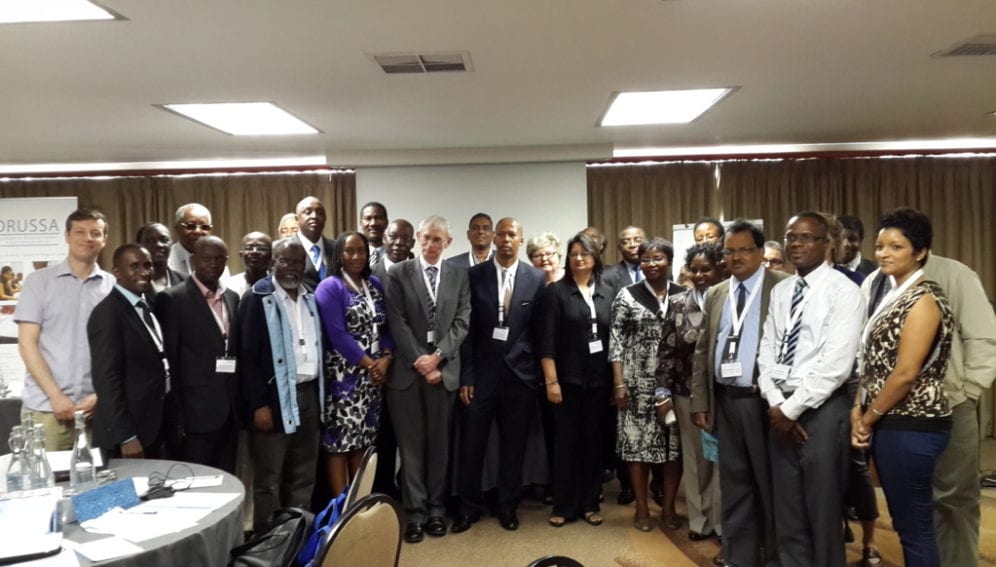Send to a friend
The details you provide on this page will not be used to send unsolicited email, and will not be sold to a 3rd party. See privacy policy.
[CAPE TOWN] For the past few days I’ve been taking part in a conference marking the halfway point of the Development Research Uptake in Sub-Saharan Africa (DRUSSA) project.
I have been pleasantly surprised to hear that best practice ideas and initiatives for ensuring research is useable by policymakers are being discussed and trailed in many of the participating universities.
It’s particularly good to see multi-stakeholder involvement on the table, as well as the incentives for research that actually has an impact — not just another publication.
DRUSSA is a five year scheme, funded by DFID, that aims to provide direct support to 24 selected universities from Eastern, Western and Southern Africa as they work together to improve research uptake capacity. It consists of a partnership between the Association of Commonwealth Universities, The Centre for Research into Evaluation, Science and Technology at the University of Stellenbosch, and Organisation Systems Design, a consultancy specialising in advising on organisational change.
The overall focus of this benchmarking conference, according to DRUSSA’s programme manager Karrine Sanders, was to identify key factors of success, and changes that have taken place, facilitating university-lead learning and collaboration as institutions continue to work to implement changes they have prioritised. Over 30 senior representatives from 22 member universities from across the region attended, mainly high level managers and research office directors.
Delegates at the meeting agreed that universities can play a big role in helping address development challenges if they focus on producing quality research that can inform policy and development. For me, it seems that one of the central requirements for this to happen is that multiple stakeholders — particularly from local society and industries — are engaged in the process.
The main challenges are related to getting staff on board with the idea of producing research that can be applied, and making it visible to those who can do the applying, such as development practitioners and policymakers. Funding, the skills and time staff need to work on the ideas and a lack of collaboration were also seen as hurdles.
On top of that there is the challenge of doing research in new ways; altering the methods and approaches used so that the end result is not simply new knowledge but knowledge that is useful for
development practitioners. This involves developing new curricula and a general mind shift.
However there has been progress as the forthcoming 2014 DRUSSA Benchmarking Survey Report will demonstrate.
For example, I’m happy to report that:
> Senior managers are more interested in the idea of research uptake — a factor that has been identified as key to enabling successful institutional change.
> There are also more offices and posts dedicated to research uptake. Plus more incentives for academic staff and departments to develop partnerships with external stakeholders and to incorporate their needs into research planning.
> More mechanisms have been developed to assess the impact of research.
> And more communication strategies have been developed that reach a wider audience. Part of this is the partnering with non-academics for science communication.
Overall, for me, it’s been an encouraging meeting.














